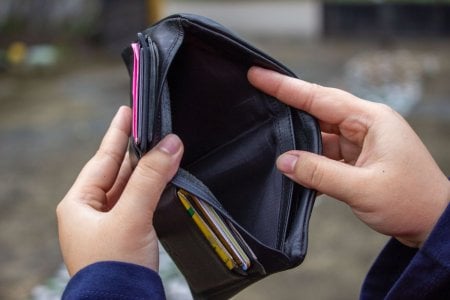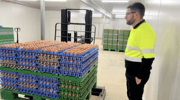The Hidden Costs of Being Poor In Australia
- Replies 12
If you're a seasoned IKEA shopper who's ever bought a faux-leather lounge for half the price, only for it to crumble like a sausage roll, then you're probably well-acquainted with the phrase ‘buy cheap, buy twice’. But not everyone has a choice in the matter.
Recently, a thoughtful discussion arose online about the pitfalls associated with living on a low or fixed income and how it can paradoxically be more expensive than the cost of living for those on a higher income.
The post unearthed the issue through relatable examples like exorbitant bank overdraft fees, high grocery prices and the cost of ‘convenience’ when you don’t live close to major discount stores.
One participant confessed to bargain hunting at ALDI, swayed by deals on essentials such as fruit and veg, only to succumb to the tantalising ‘life-changing’ offerings of the notorious middle aisle.
Issues of registration, parking, fines, dental work, electricity bills, fuel, public transport, and clothing were also uncovered as grave concerns.
One commenter suggested that fines should be a fraction of one's earnings, addressing the asymmetrical burden these bear upon low-income individuals.
The lack of quality affordable winter clothing was also a huge concern, with many stating the unfairness in the 'cheap equals thin' mentality of low-cost fashion and op shops.
‘Clothing. There's no cheap warm clothes. You have to layer up a lot more since cheap=thin. Even op shops overcharge.’ said one comment.
Another added, ‘Can’t buy decent pots and pans or shoes so buy cheap ones that wear out and have to be replaced. Buy once and buy quality requires money to shell out in the first place.’
Meanwhile, others were more concerned with another essential–mediation. Medication expenses, particularly for the ageing demographic dealing with increased health anomalies, were another huge point of worry.
‘Medication, especially as you get older and need more of it.’
Dental health was an issue that equally resonated with commenters, with stories of decade-long lapses from their last visit.
‘I haven't been to the dentist since the free dental van in primary school. Definitely over twenty years ago.’
Food shopping left many disgruntled, pointing out the regrettable irony of being compelled to buy food in lesser quantities at a much higher cost per kilogram, underscoring the expensive struggle of being poor.
Buy-in-bulk stores like Costco emerged as a saving grace but were still viewed as a mixed blessing considering the membership fees, vast storage space necessary, and transport hassles involved.
The narrative of a woman whose husband was underpaid for 16 years by his disability service employer was particularly striking. They took the company to court, and even though they got a six-year back payment, this led to the loss of their low-income health card and other concessions.
‘My husband was underpaid by his company for 16 years. A company who employs disability clients. My husband was a field worker managing 2 disability workers and working alongside them. He challenged the company. We had to employ a lawyer (with lower fees for low-income people). He got back paid for 6 years (the legal limit they have to pay). Which tipped us over the limit for my Centrelink job seeker payment for the next 12 months into the future and threatened my connection with my employment agency. We lost our low-income health card and all our concessions. Because his pay went up to $21 an hour.’
Another chimed in to explain their own situation, stating, ‘When you earn too much for a concession card but are too poor to afford the things you relied on the concession card for.’
The discussion highlighted the inherent obstacles faced by Australia's lower-income brackets.
As insightful as this conversation was to read, it invites even more debate. Should fines be tied to income? How can we make quality clothing and healthy food readily affordable? What more can be done to assist with medical costs? We would love to unpack this essential issue together. We’re also curious whether you have any examples of your own.
Recently, a thoughtful discussion arose online about the pitfalls associated with living on a low or fixed income and how it can paradoxically be more expensive than the cost of living for those on a higher income.
The post unearthed the issue through relatable examples like exorbitant bank overdraft fees, high grocery prices and the cost of ‘convenience’ when you don’t live close to major discount stores.
One participant confessed to bargain hunting at ALDI, swayed by deals on essentials such as fruit and veg, only to succumb to the tantalising ‘life-changing’ offerings of the notorious middle aisle.
Issues of registration, parking, fines, dental work, electricity bills, fuel, public transport, and clothing were also uncovered as grave concerns.
One commenter suggested that fines should be a fraction of one's earnings, addressing the asymmetrical burden these bear upon low-income individuals.
The lack of quality affordable winter clothing was also a huge concern, with many stating the unfairness in the 'cheap equals thin' mentality of low-cost fashion and op shops.
‘Clothing. There's no cheap warm clothes. You have to layer up a lot more since cheap=thin. Even op shops overcharge.’ said one comment.
Another added, ‘Can’t buy decent pots and pans or shoes so buy cheap ones that wear out and have to be replaced. Buy once and buy quality requires money to shell out in the first place.’
Meanwhile, others were more concerned with another essential–mediation. Medication expenses, particularly for the ageing demographic dealing with increased health anomalies, were another huge point of worry.
‘Medication, especially as you get older and need more of it.’
Dental health was an issue that equally resonated with commenters, with stories of decade-long lapses from their last visit.
‘I haven't been to the dentist since the free dental van in primary school. Definitely over twenty years ago.’
Food shopping left many disgruntled, pointing out the regrettable irony of being compelled to buy food in lesser quantities at a much higher cost per kilogram, underscoring the expensive struggle of being poor.
Buy-in-bulk stores like Costco emerged as a saving grace but were still viewed as a mixed blessing considering the membership fees, vast storage space necessary, and transport hassles involved.
The narrative of a woman whose husband was underpaid for 16 years by his disability service employer was particularly striking. They took the company to court, and even though they got a six-year back payment, this led to the loss of their low-income health card and other concessions.
‘My husband was underpaid by his company for 16 years. A company who employs disability clients. My husband was a field worker managing 2 disability workers and working alongside them. He challenged the company. We had to employ a lawyer (with lower fees for low-income people). He got back paid for 6 years (the legal limit they have to pay). Which tipped us over the limit for my Centrelink job seeker payment for the next 12 months into the future and threatened my connection with my employment agency. We lost our low-income health card and all our concessions. Because his pay went up to $21 an hour.’
Another chimed in to explain their own situation, stating, ‘When you earn too much for a concession card but are too poor to afford the things you relied on the concession card for.’
The discussion highlighted the inherent obstacles faced by Australia's lower-income brackets.
As insightful as this conversation was to read, it invites even more debate. Should fines be tied to income? How can we make quality clothing and healthy food readily affordable? What more can be done to assist with medical costs? We would love to unpack this essential issue together. We’re also curious whether you have any examples of your own.









